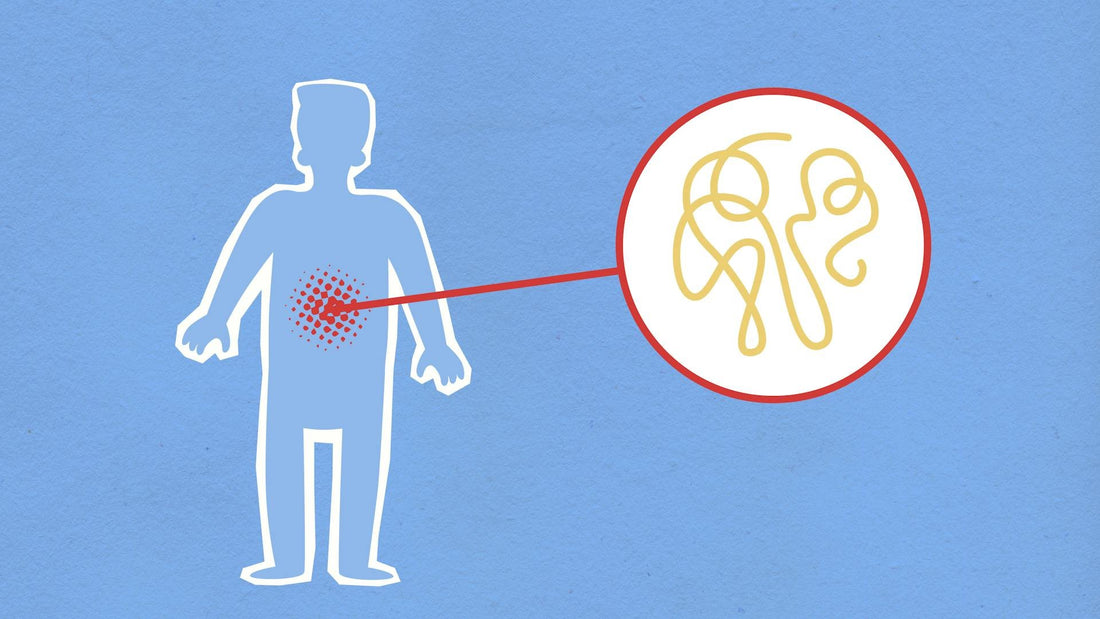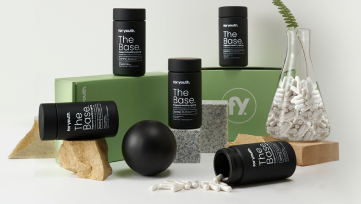Quercetin and Inflammation: How This Antioxidant Can Reduce Inflammation


 Shop our Quercetin
Shop our Quercetin 
Quercetin, a powerful antioxidant found naturally in various fruits, vegetables, and grains, may offer a solution. This article explores the potential of Quercetin in mitigating inflammation, backed by scientific studies.
It delves into Quercetin’s integral role as an antioxidant and its link to inflammation.
Understanding the factors in choosing a Quercetin supplement is crucial for maximizing the anti-inflammatory benefits it provides. Integrating Quercetin into your daily health regimen can be a holistic approach to wellness. Studies suggest that Quercetin may also play a significant role in boosting the immune system, making it a valuable ally during cold and flu season. Furthermore, the relationship between Quercetin and eye health demonstrates its versatility as a nutritional powerhouse.
Combining Quercetin with zinc may create the ultimate combo for fortifying your body’s defenses against oxidative stress. In addition, parents looking to support their children’s health should consider the benefits of Quercetin for kids as a powerful antioxidant, offering a nutritional safeguard for growing bodies.
Finally, we provide guidelines on how to incorporate Quercetin into your diet to benefit from its anti-inflammatory properties.
Key Takeaways
Quercetin is a powerful flavonoid found abundantly in nature with anti-inflammatory and antihistamine effects.
- Quercetin functions as an antioxidant by neutralizing harmful free radicals and reducing oxidative stress.
- Quercetin can modulate the body’s inflammatory response by inhibiting the production of histamines and inflammatory cytokines.
- Studies have shown that quercetin has anti-inflammatory effects and may be beneficial for individuals with chronic inflammatory conditions.
By signing up, you consent to receive For Youth emails
Get The Latest On Longevity Delivered To Your Inbox.
Understanding Quercetin and Its Sources
To fully appreciate the benefits of quercetin, it’s crucial that we first understand what it is and identify its primary sources.
Quercetin is a powerful flavonoid, a type of antioxidant found abundantly in nature. Known for its anti-inflammatory and antihistamine effects, it plays a pivotal role in protecting our cells from damage, thus promoting overall health.
The primary sources of quercetin include various fruits, vegetables, grains, and nuts. Notably, apples, onions, red grapes, citrus fruits, broccoli, and cherries are rich in quercetin. Furthermore, it can also be found in beverages like tea and wine.
To further delve into the myriad of health advantages offered by quercetin, research indicates a strong connection between this flavonoid and improved cardiovascular health. Additionally, studies suggest that quercetin can play a significant role in supporting respiratory health, an area of increasing concern in today’s health discourse.
For those considering an enhancement of their diet, science suggests that supplementation of quercetin could be a viable path to achieve its health benefits without having to significantly alter daily food intake. Targeted towards mitigating inflammation, quercetin has been spotlighted for its potential in combating inflammatory processes, as highlighted in our extensive overview on quercetin for inflammation.
Furthermore, the ability of quercetin supplements to boost immunity and prevent illness is another aspect that positions it as a valuable dietary supplement. Delve into the power of quercetin and understand how it can fortify your diet and contribute to a resilient and robust health profile.
Incorporating these foods into your daily diet can help optimize the intake of this potent antioxidant and its associated health benefits.
Quercetin’s Role as an Antioxidant
How does quercetin function as an antioxidant, given its prevalence in various fruits, vegetables, grains, and nuts? As an antioxidant, quercetin plays a key role in neutralizing harmful free radicals in the body, thereby reducing oxidative stress, which is linked to chronic inflammation.
It achieves this by donating an electron to the free radical, rendering it harmless and preventing further cellular damage.
The Connection Between Quercetin and Inflammation
The relationship between quercetin and inflammation is rooted in the antioxidant’s ability to modulate the body’s inflammatory response, showcasing its potential in managing chronic inflammatory conditions.
Quercetin inhibits the production and release of histamines, and other inflammatory cytokines like interleukin and tumor necrosis factor, thereby reducing inflammation. Additionally, it suppresses the activities of enzymes such as lipoxygenase and cyclooxygenase, involved in the inflammatory process. These mechanisms help to minimize the harmful impacts of inflammation on cells and tissues.
Furthermore, quercetin’s antioxidant properties aid in neutralizing harmful free radicals that exacerbate inflammation. Hence, quercetin’s dual role as an anti-inflammatory and antioxidant agent makes it a promising natural remedy for inflammation-related health issues.
Research on Quercetin’s Anti-Inflammatory Effects

 Shop our Quercetin
Shop our Quercetin 
While understanding the theoretical workings of quercetin is pivotal, it is equally essential to explore the empirical findings that substantiate its anti-inflammatory effects.
Numerous studies have demonstrated quercetin’s potential in inhibiting inflammatory responses. In a 2016 study published in the Journal of Nutrition, researchers found that quercetin significantly reduced inflammation in obese subjects.
Another study on athletes discovered that quercetin reduced inflammation induced by strenuous exercise. Moreover, research published in the International Journal of Molecular Sciences reported that quercetin could interrupt the signaling pathways that trigger inflammation.
These findings affirm quercetin’s potential as a natural anti-inflammatory agent, promising for individuals with chronic inflammatory conditions.
Incorporating Quercetin Into Your Diet
Incorporating a sufficient amount of quercetin into your diet can be achieved through the consumption of certain fruits, vegetables, and grains. This bioflavonoid is naturally present in a variety of foods and can easily be added to your daily meals.
Here are some foods rich in quercetin:
- Apples: One of the most common sources, especially in the peel.
- Onions: Particularly rich in quercetin, especially red and yellow varieties.
- Berries: Including blueberries and raspberries.
- Whole Grains: Such as buckwheat.
Including these foods in your diet not only provides quercetin but also offers a host of other nutrients. Remember, balance and variety in your diet are key to obtaining optimal health benefits.
What You Need To Know About For Youth
For Youth demystifies the science of longevity, making it accessible to everyone. With the view of considering aging as a “disease” that can be cured, we aim to help individuals slow down or even reverse aging at a cellular level, ultimately leading to a healthier and longer life.
Aging is the underlying cause of various health issues, ranging from minor problems like wrinkles to severe diseases like Alzheimer’s or cancer. By slowing down the aging process, one can significantly improve their overall health and well-being.
For Youth offers a biological age test and a range of science-backed, lab-tested, and carefully sourced supplements, such as NMN or resveratrol, to help you monitor and counteract the effects of aging.
Quercetin by For Youth
⇒ The Zombie – Quercetin Singapor
Description:
Quercetin is a scientifically-backed, plant-based anti-aging supplement. The Quercetin Phytosome™ acts as both an antioxidant and senolytic, effectively targeting and eliminating senescent or “zombie” cells to promote a longer, healthier life. By removing these harmful cells, quercetin helps to reduce inflammation, alleviate allergy symptoms, strengthen the immune system, improve athletic performance, and address a variety of age-related issues.

While some companies may ambiguously mention “made in XXX”, they may not provide full disclosure about the chain of production. Unlike these companies, For Youth is committed to complete transparency and shares the details of our supply chain at every step of the process.
Sourced from Italy
Indena, the firm behind Quercetin Phytosome™, is a company with over a century’s worth of history based in Italy, specializing in herbal ingredients. They innovated the Phytosome™ technology to markedly escalate the bioavailability of ingredients typically not effectively absorbed by our bodies.
Produced in Italy
The flowering extract of the Sophora japonica or Japanese pagoda tree is refined into Quercetin Phytosome™ in Italy. The state-of-the-art Phytosome™ technology develops a free-flow matrix preventing quercetin from clumping and heightening its absorption rate dramatically. This innovation leads to an extraordinary 20-fold improvement in absorption relative to standard quercetin.
Encapsulated in France
Our Quercetin product is encapsulated within vegetarian capsules at our affiliate facilities located in France.
Bottled in Singapore
The Quercetin capsules are transported in large quantities to our Singapore location. Upon arrival, a third-party laboratory tests the capsules, which are then bottled by our partner at their pharmaceutical facilities in Singapore.
Conclusion
In conclusion, as we consider the expansive benefits of quercetin, a naturally occurring antioxidant with demonstrable anti-inflammatory effects, its role in dietary management and health promotion becomes increasingly apparent. Scientific research confirms quercetin’s ability to alleviate inflammation, potentially providing relief from various inflammatory conditions.
Furthermore, for the younger population, the advantages of quercetin cannot be overstated. As youth navigate through a world of environmental stressors and dietary fluctuations, quercetin emerges as a vital ally. With its capacity to combat oxidative stress and support immune function, it represents a nutritional safeguard that may help fortify the growing bodies of children and adolescents against the incipient stages of chronic illness.
For Youth specifically targets the intersection of youthfulness and well-being by offering carefully curated supplements such as their featured product, The Zombie – Quercetin Singapore. This product harnesses the senolytic and antioxidative properties of quercetin to target senescent cells, promoting vitality and possibly delaying the signs of aging at a cellular level. With a committed stance on transparency, For Youth distinguishes its offerings by providing detailed insights into the sourcing, production, and packaging processes, ensuring that consumers receive not just a supplement, but a comprehensive health investment.
This initiative underscores a broader commitment to a life enriched not only by extended years but also by an enhanced quality of life, which aligns seamlessly with the youth-centric approach to health advocacy. By ensuring accessibility to such potent nutraceuticals, For Youth stands at the forefront of empowering individuals with the tools necessary for a proactive approach to lifelong wellness.
Embracing quercetin through the offerings of For Youth or other dietary means could, therefore, be a significant stride towards a balanced, health-oriented lifestyle that values the vitality of youth as a cornerstone for a flourishing future.









